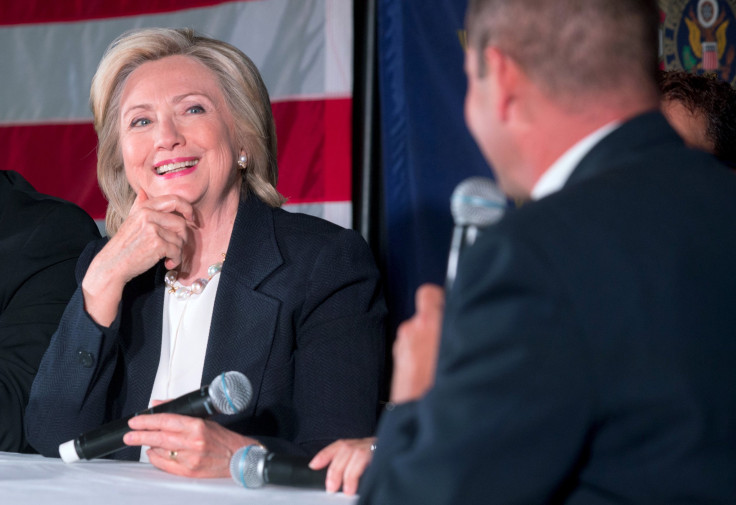Hillary Clinton And Trans-Pacific Partnership: Obama Aide Calls Her Out On TPP Past

Hillary Clinton has found herself in a tough place. Democrats have come together in a high-profile rejection of giving U.S. President Barack Obama broad trade negotiation authority on the Trans-Pacific Partnership (TPP), and it makes political sense that Clinton has more or less done the same in campaign rallies. The problem for Clinton, though, is that during her time as secretary of state, she may have expressed support for the deal more than a few times -- and at least one Obama administration aide has pointed out her involvement.
In an interview on Bloomberg TV Thursday, National Security Adviser Susan Rice said that negotiating the TPP was one of Clinton’s biggest achievements while at the State Department. Less than a week earlier in Iowa, Clinton said that the president should listen to his allies in Congress, such as House Minority Leader Nancy Pelosi, when approaching the deal. Pelosi has been a strong ally of Obama on just about everything throughout his presidency, but recently she opposed Obama and the so-called fast track authority for trade deals.
“As you know, we have been negotiating the Trans-Pacific Partnership agreement to bring that to fruition,” Rice said. “We look forward to receiving trade promotion authority from Congress. That is another significant accomplishment” of Clinton’s.
On Sunday in Des Moines, Clinton took a somewhat measured approach to the subject while saying Obama should heed his Democratic allies. She said she would be tough in similar negotiations if she were president and cited her vast experience voting on trade deals while a Senator from 2000 through 2008.
But, critics have pointed out that she’s held conflicting views on trade deals in the more than two decades she has been in the national public eye. At various points, she’s both supported and opposed trade reform.
As a candidate in 2008, she opposed the North American Free Trade Agreement, which she supported when her husband promoted it as president in the '90s. She then helped negotiate the TPP as secretary of state. After her tenure at the State Department, she went more or less silent on the topic until recently, when she seemed to reverse course, though in a noncommittal manner.
“What I have advised … is that the president take the opportunity offered by staunch allies like Nancy Pelosi … and try to figure out how to use this as leverage to go back to the other countries and say: ‘You want a lot out of this. I need more,’ ” Clinton told Radio Iowa this week.
The TPP negotiations are a part of the Obama administration’s so-called pivot to Asia. Early in his presidency, Obama outlined a plan to put more energy and focus into the Asian Pacific, especially in terms of economic development. While serving as Obama’s secretary of state, Clinton expressed support for the Trans-Pacific Partnership in at least 45 public speeches, according to a roundup of quotes by CNN.
“Now President Obama and I have said many times that this will be America’s Pacific century, and we are focused on the broader Pacific,” Clinton said in remarks on April 12, 2012, at the White House Conference on Connecting the Americas. “That’s why we’re creating the Trans-Pacific Partnership. We recognize the mutual benefits of engagement between the Americas and the rest of the Pacific.”
In April, Clinton’s staff said that she would still consider the trade deal under certain circumstances and hadn’t yet rejected it.
“Hillary Clinton believes that any new trade measure has to pass two tests,” Clinton’s spokesman, Nick Merrill, said in a statement to the New York Times. “First, it should put us in a position to protect American workers, raise wages and create more good jobs at home. Second, it must also strengthen our national security. We should be willing to walk away from any outcome that falls short of these tests.”
But while she seems to be publicly distancing herself from the president’s trade policy, her campaign has quietly partnered with a pro-TPP lobbying firm.
A majority of Americans oppose giving the president fast track authority to negotiate the trade deal, according to a New York Times/CBS poll. There’s at least one other reason that Clinton might be pushed farther away from supporting the TPP: her Democratic primary challenger Sen. Bernie Sanders, who opposes TPP fast track. He’s already criticized her for maintaining a lukewarm position, and he has surged to within 10 points of Clinton in New Hampshire.
© Copyright IBTimes 2025. All rights reserved.






















